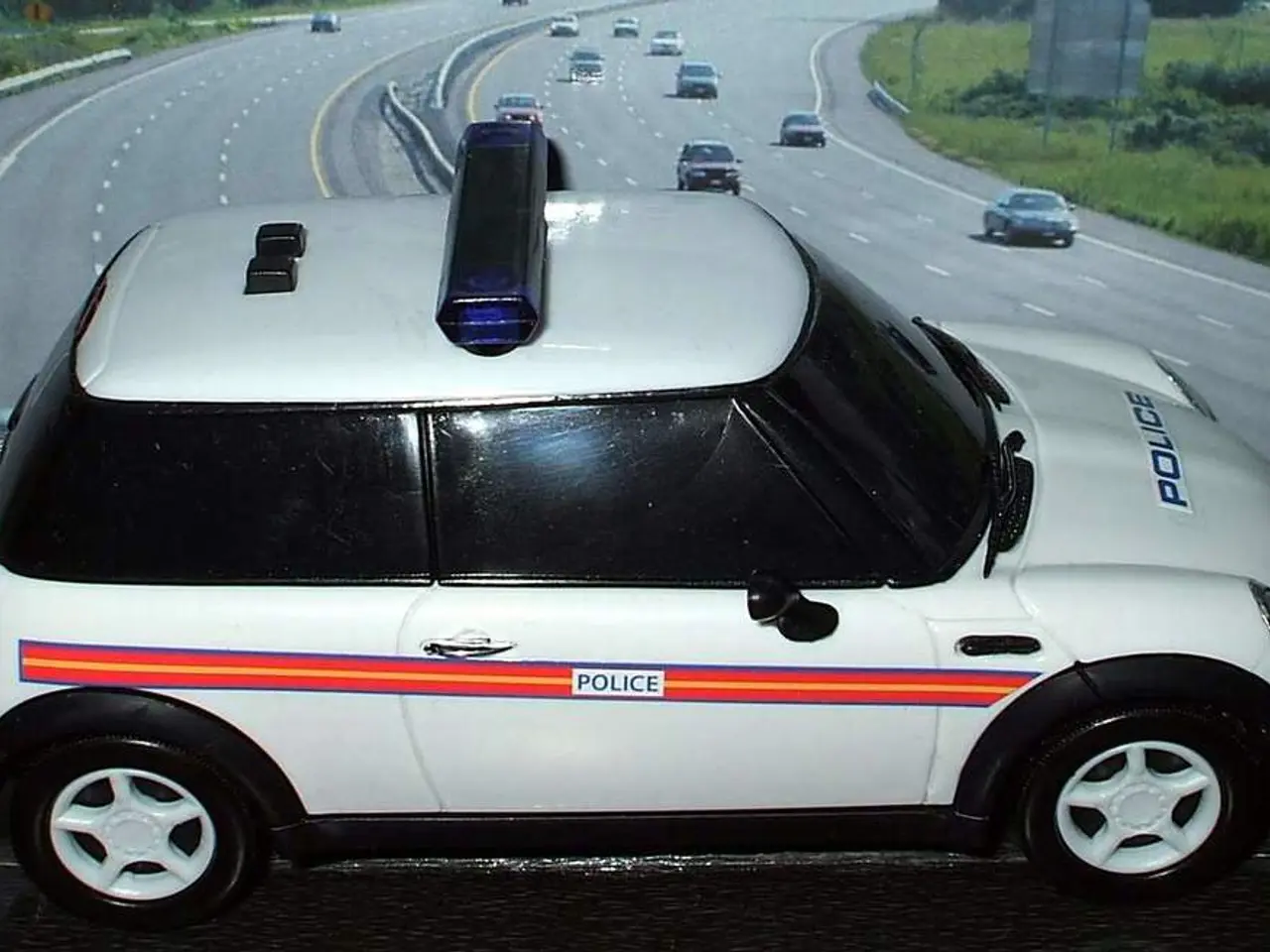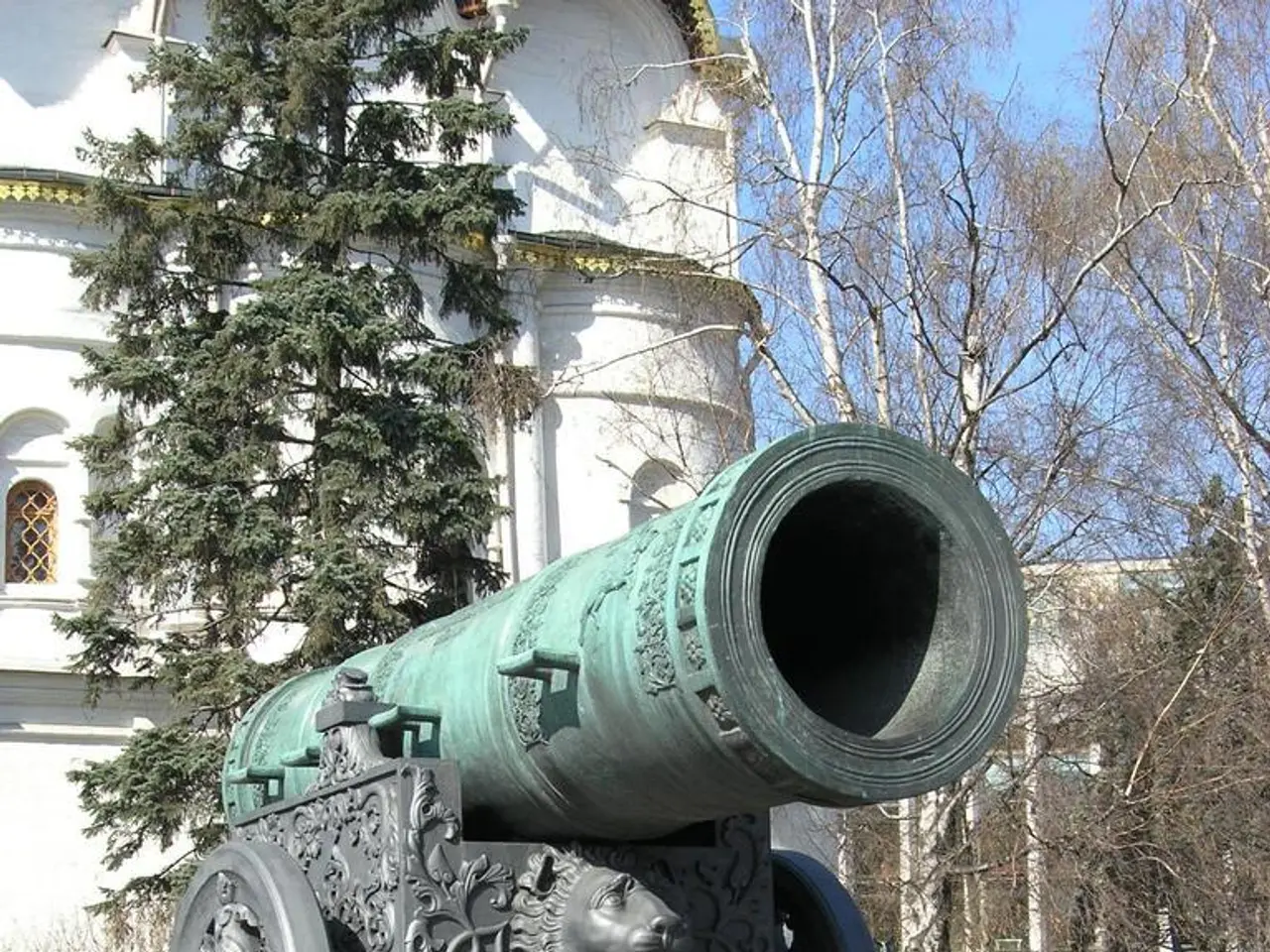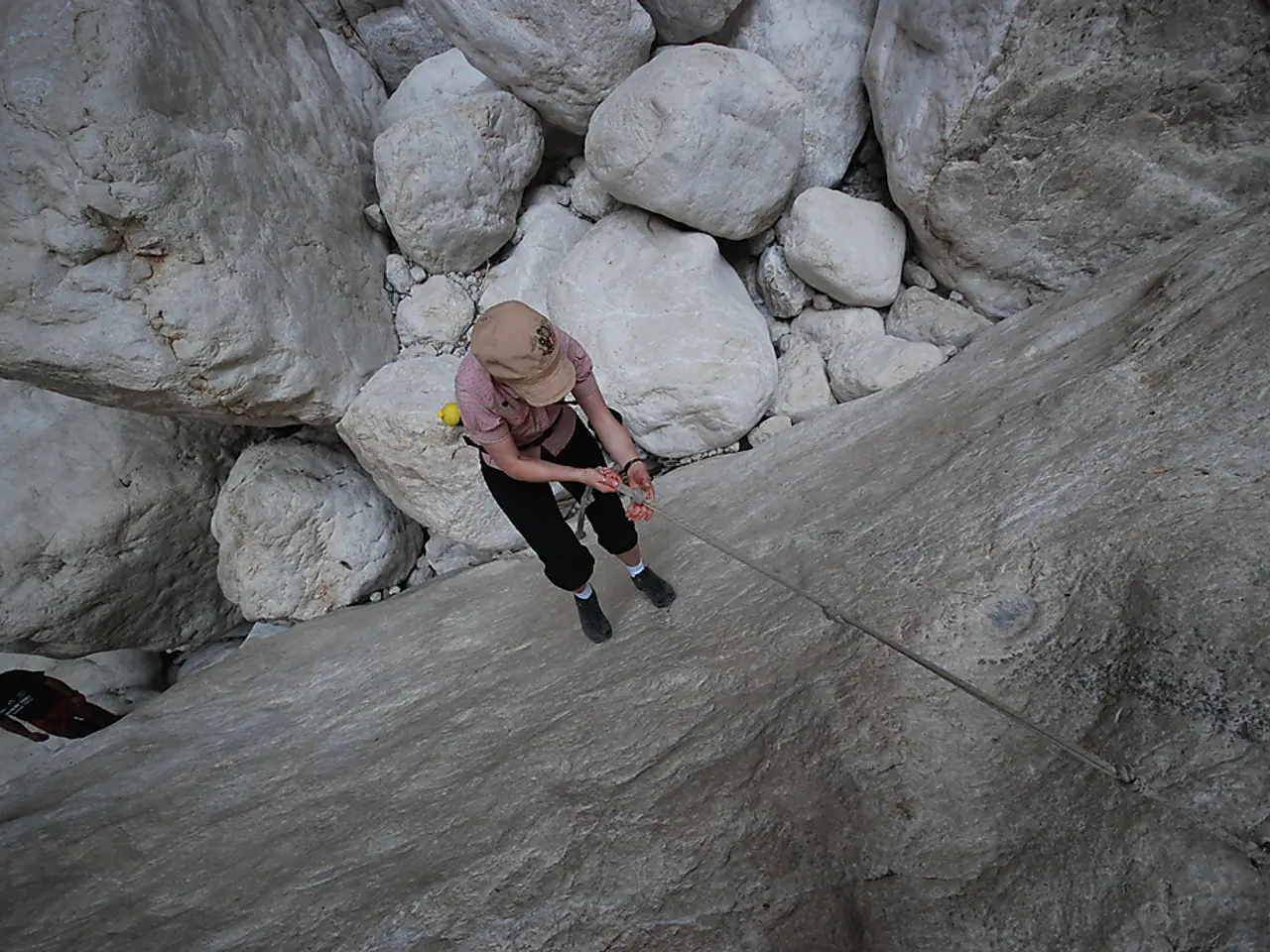DC faces renewed danger from Trump's declared takeover, following an assault on a former DOGE worker during a carjacking attempt
In the heart of the nation's capital, the issue of crime and governance has been a topic of intense debate. Former President Donald Trump has been at the forefront of this discussion, suggesting a takeover of Washington, D.C. by the federal government.
Earlier this year, Trump expressed his concerns about the rising crime rate in the city, believing that local youths and gang members are randomly attacking, mugging, and shooting innocent citizens. In response, he threatened to federalize Washington, D.C., a move that would grant him control over the city's governance.
However, it's important to note that the President does not have the authority to unilaterally federalize the city. The District of Columbia Home Rule Act of 1973 grants Washington, D.C. a degree of self-governance, allowing its residents to elect a local mayor and council to pass laws. Congress, however, retains ultimate authority over the city and can amend or block these laws.
Trump's proposed federal takeover would require an act of Congress to repeal or substantially alter the Home Rule Act. So far, such legislation has not been introduced.
Instead, recent federal initiatives have involved deploying federal law enforcement officers from multiple agencies, such as the FBI, DEA, and U.S. Capitol Police, to increase policing in D.C., particularly in high-traffic tourist areas. These federal actions aim to supplement local law enforcement but have caused controversy, with criticism from D.C.’s congressional delegate and local activists that such federal presence threatens civil liberties and undermines local control.
In March, Trump signed an executive order establishing a "D.C. Safe and Beautiful Task Force" to ensure federal participation in city issues, including maximum enforcement of federal immigration laws and beefing up federal and local law enforcement presence. The executive order aims to ensure that "all applicable quality of life, nuisance, and public-safety laws are strictly enforced," including crimes involving assault, battery, larceny, graffiti, public intoxication, and more.
Trump has also stated that federalizing Washington, D.C., would help put criminals on notice that they will no longer get away with their crimes. If Washington, D.C., does not address its crime issue quickly, he has expressed that he will exert his powers to federalize the city.
This issue is not without controversy. DC Mayor Muriel Bowser's office declined to comment on Trump's remarks when reached by CNN. Additionally, CNN previously reported that Bowser has faced criticism from some local officials for her less defiant approach during Trump's second term.
The debate over the federalization of Washington, D.C. continues, with no clear resolution in sight. As the city grapples with its crime issues, the future of its governance remains a topic of intense discussion and political maneuvering.
Trump has proposed a federal takeover of Washington, D.C., aiming to provide stricter enforcement of laws, especially those related to crime, and put criminals on notice. Despite this, the President does not possess the authority to unilaterally federalize the city due to the District of Columbia Home Rule Act of 1973, which allows residents to elect local officials and pass laws, with Congress holding ultimate authority. The debate over federalization continues to be a hot topic in general-news and politics, with local officials voicing their concerns about potential infringement on civil liberties and undermining of local control.






